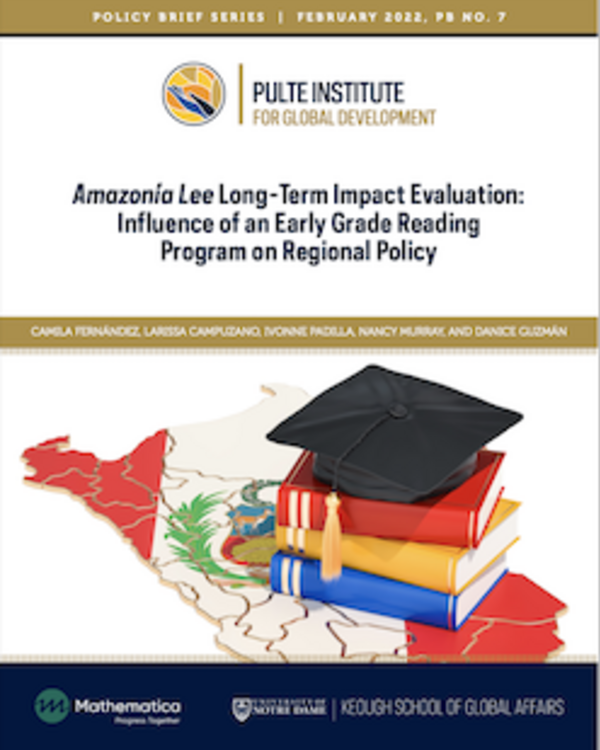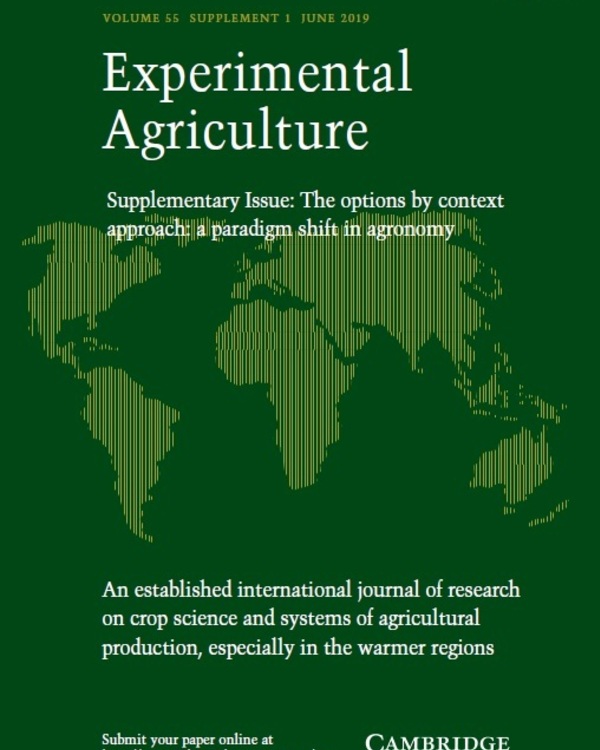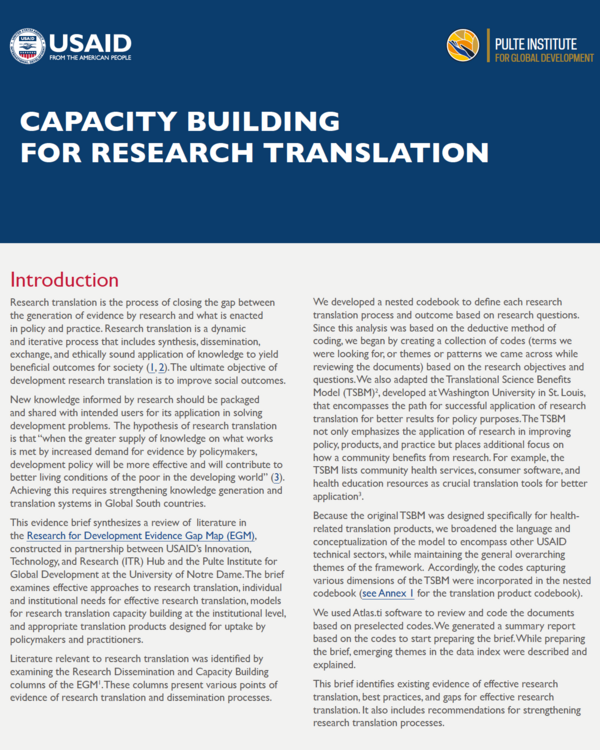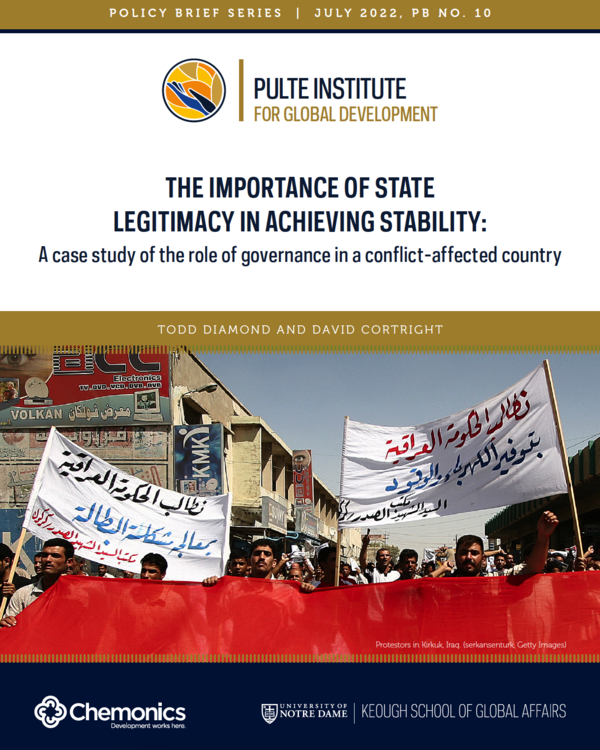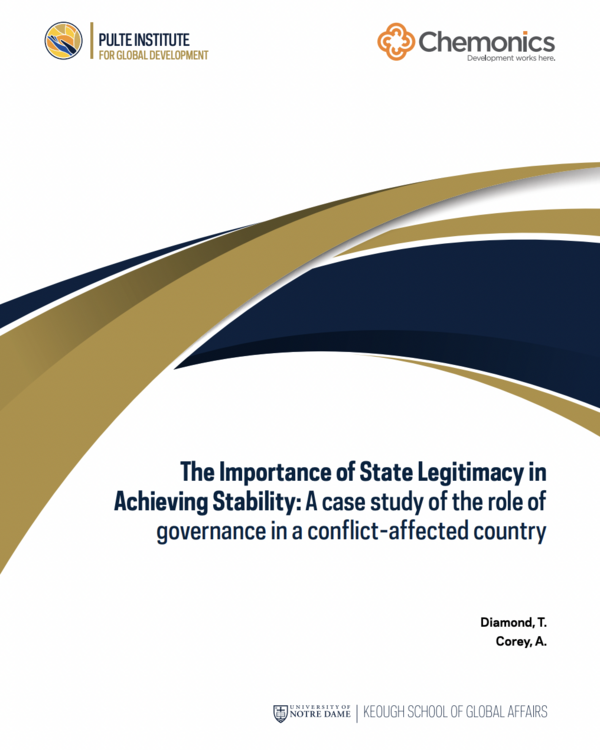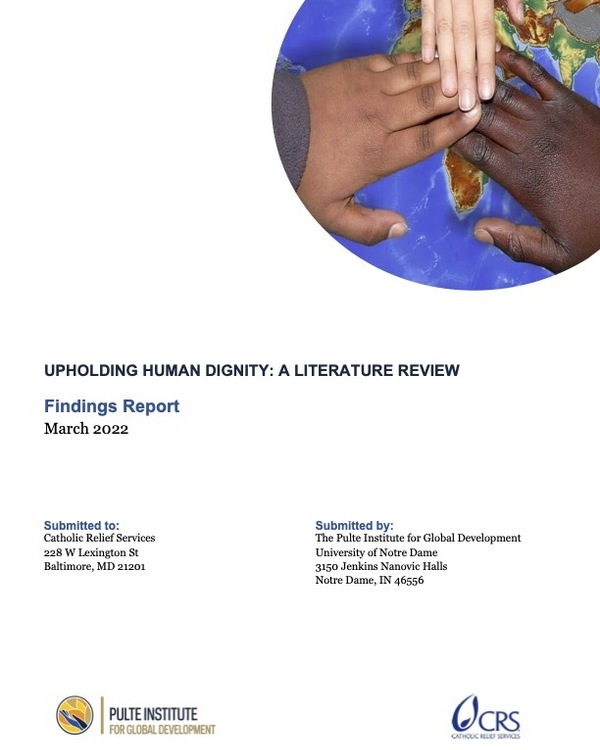Publications
Through Pulte Institute (formerly "NDIGD") programs and projects, our faculty and researchers produce evidence-based, strategic publications that aim to positively influence global development policy and practice nationally or internationally through engaging key thought leaders; policymakers and government agencies; the private sector; and the academy.
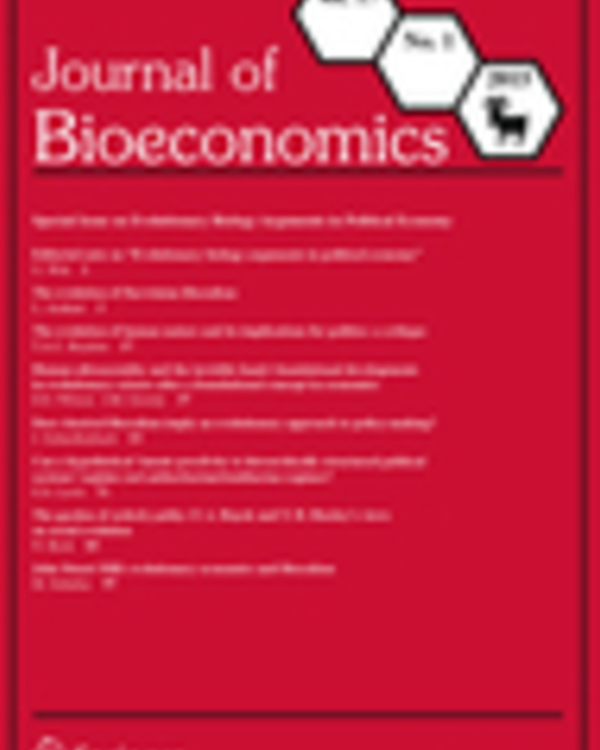
A Bioeconomic Model for Estimating Potential Economic Damages from a Hypothetical Asian Beetle Introduced via Future Trade with Cuba
This paper studies a bioeconomic model that estimates potential economic damages to southern pine forests caused by the hypothetical introduction of an unknown Asian bark or ambrosia beetle via future trade with Cuba for the study period 2018–2050.
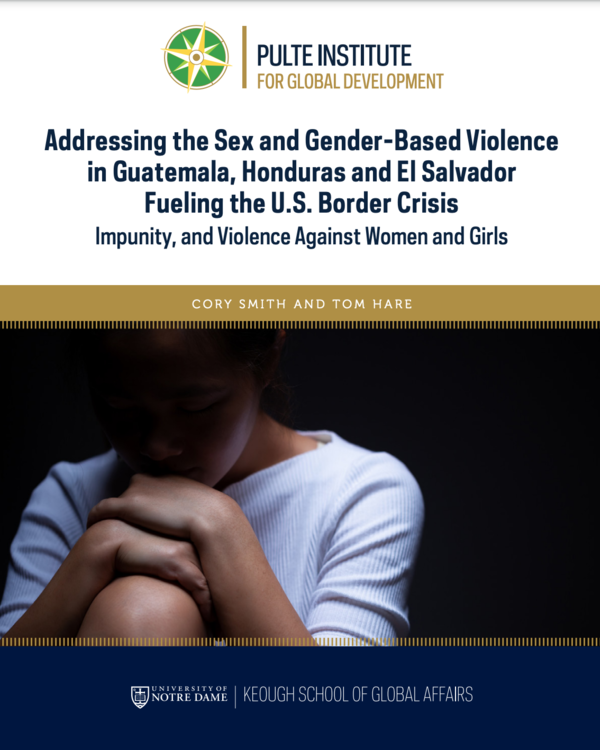
Addressing the Sex and Gender-Based Violence in Guatemala, Honduras and El Salvador Fueling the U.S. Border Crisis
This policy brief evaluates the violence against women and girls in Guatemala, Honduras and El Salvador perpetrated by gangs, narco-traffickers, human traffickers and a machismo culture fueled by corruption and impunity
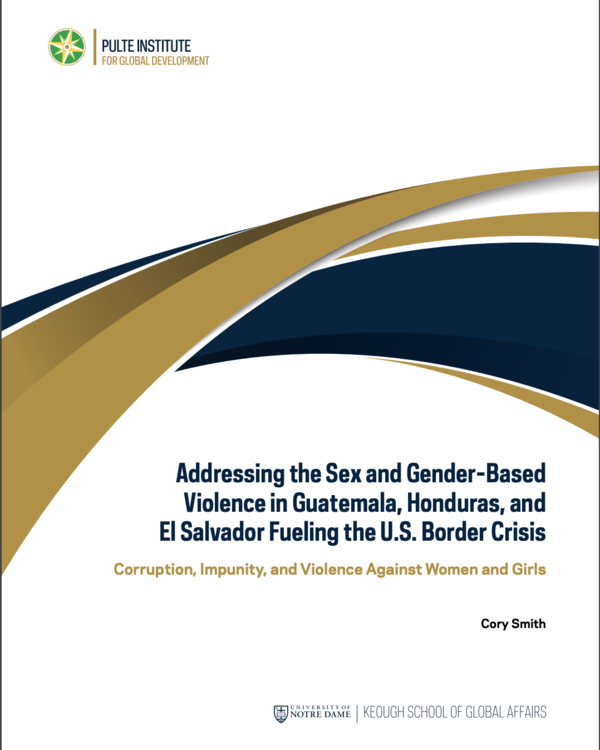
Addressing the Sex and Gender-Based Violence in Guatemala, Honduras, and El Salvador Fueling the U.S. Border Crisis: Corruption, Impunity, and Violence Against Women and Girls
This report evaluates pervasive sex and gender-based violence (SGBV) in Guatemala, Honduras and El Salvador which is perpetrated by gangs, narco-traffickers, human traffickers and a machismo culture fueled by corruption and impunity
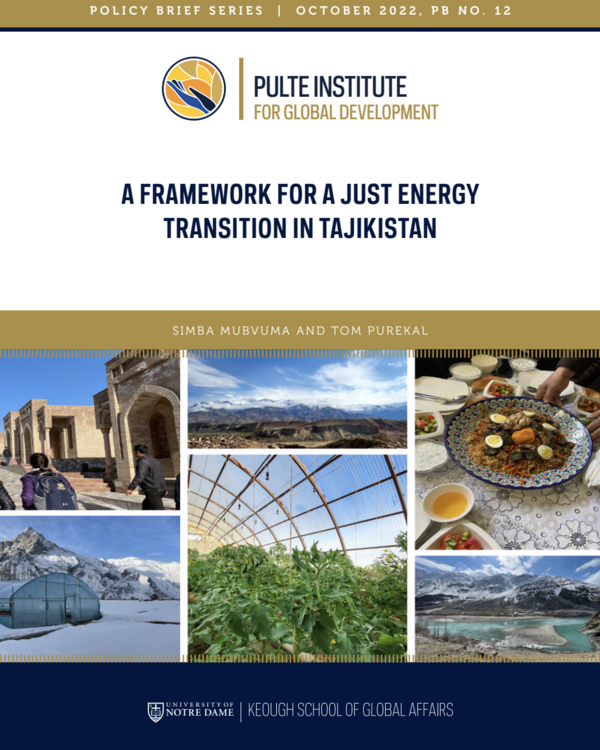
A Framework for a Just Energy Transition in Tajikistan
This policy brief provides policymakers with critical guidance and recommendations on how Tajikistan can achieve a just energy transition, including principles to consider as well as a mechanism for successful implementation.
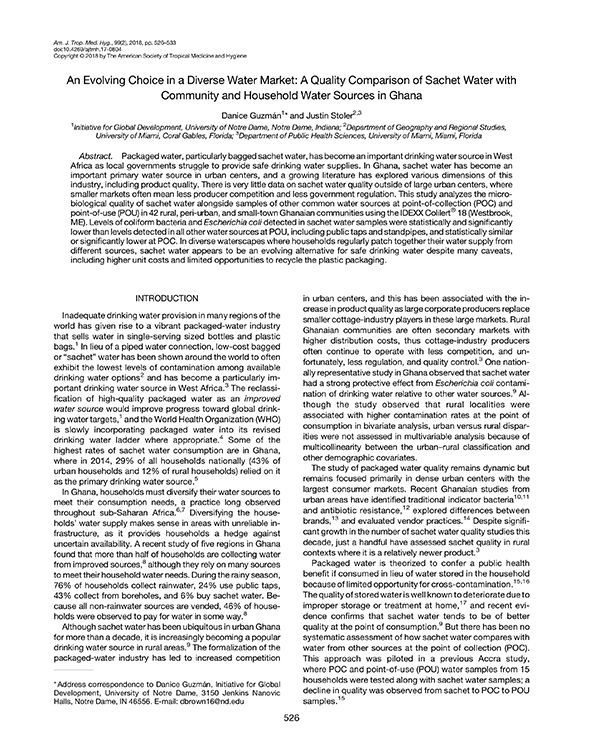
An Evolving Choice in a Diverse Water Market: A Quality Comparison of Sachet Water with Community and Household Water Sources in Ghana
This article explores the results of a study on the quality of bagged sachet water in rural communities in Ghana.
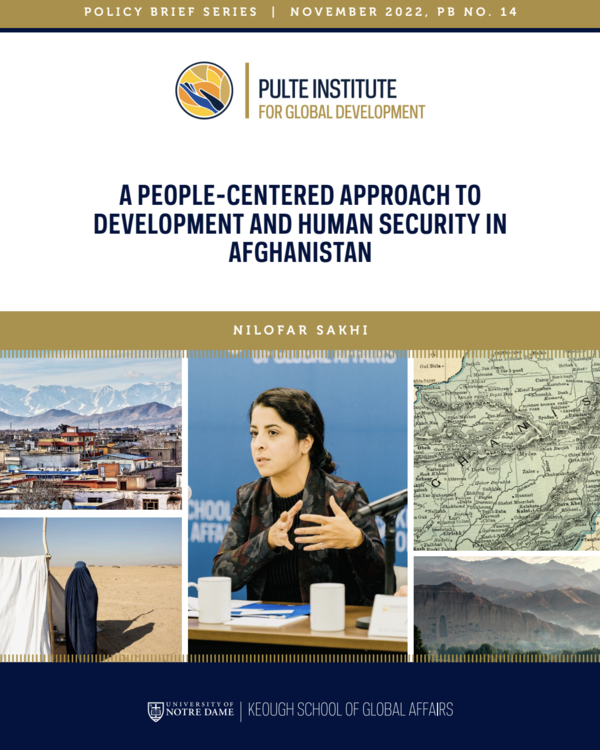
A People-Centered Approach to Development and Human Security in Afghanistan
This policy brief is about a people-centered approach to development and human security in Afghanistan.
A Slow Downward Road: Occupational Status Attainment in Mexico’s Development
This article examines labor cohort differences in occupational status to evaluate whether historical timing of entry into the workforce shapes occupational achievement dynamics throughout Mexico’s industrialization.

A Spatial Approach in Locating and Explaining Conflict Hot Spots in Nepal
This paper uses a spatial analytical approach in locating and explaining conflict in Nepal.
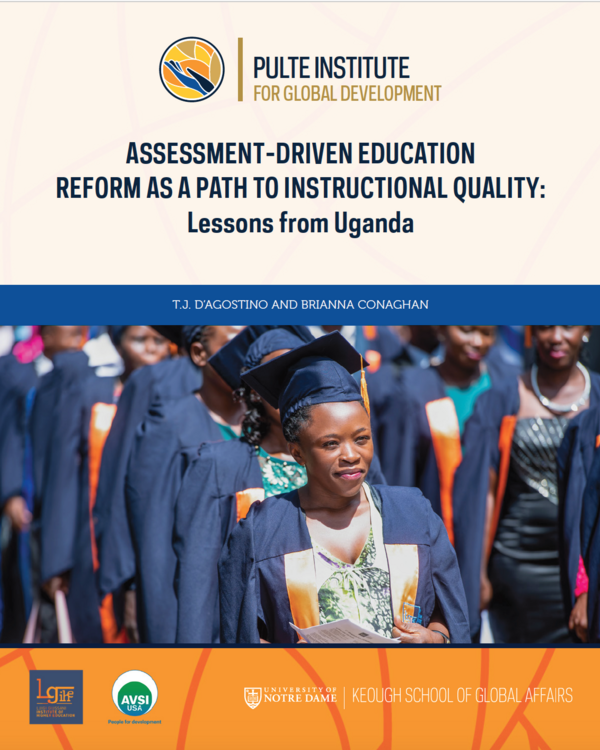
Assessment-Driven Education Reform as a Path to Instructional Quality: Lessons from Uganda
This report draws upon research and an illustrative case study from Uganda to offer a framework for effective examination-driven reform.
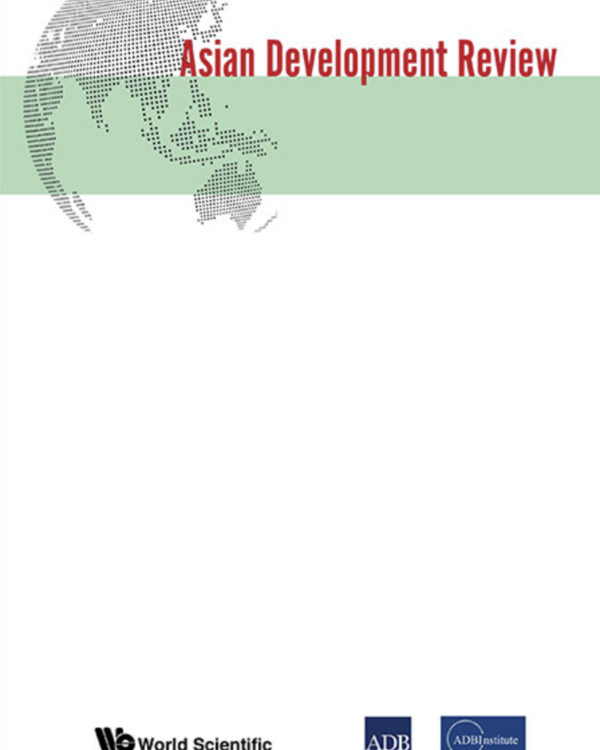
Behavior of Private Retailers in a Regulated Input Market: An Empirical Analysis of the Fertilizer Subsidy Policy in Nepal
We propose a middle ground to mitigate private sector noncompliance and suggest a policy revisit to increase the fertilizer supply and distribution efficiency.
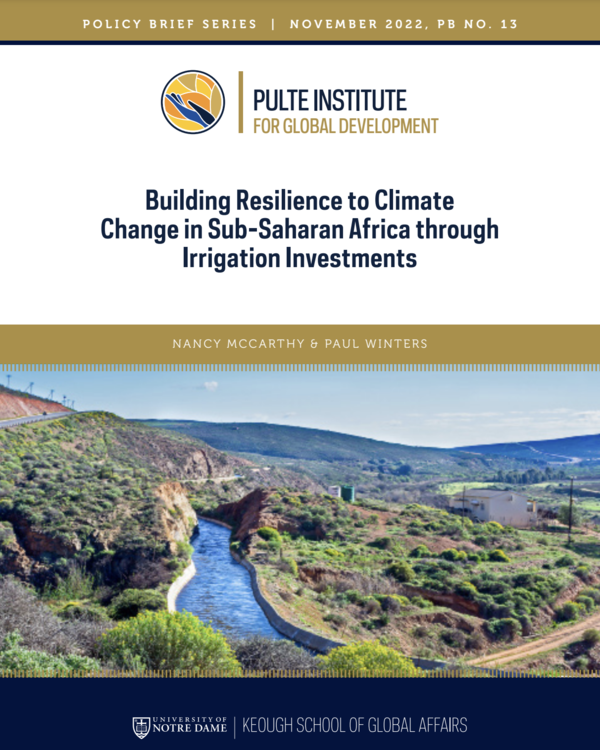
Building Resilience to Climate Change in Sub-Saharan Africa through Irrigation Investments
In this brief we consider the factors that are associated with irrigation system performance for two different types of systems: surface water irrigation schemes with many irrigators and groundwater pumping systems adopted by individual farmers.
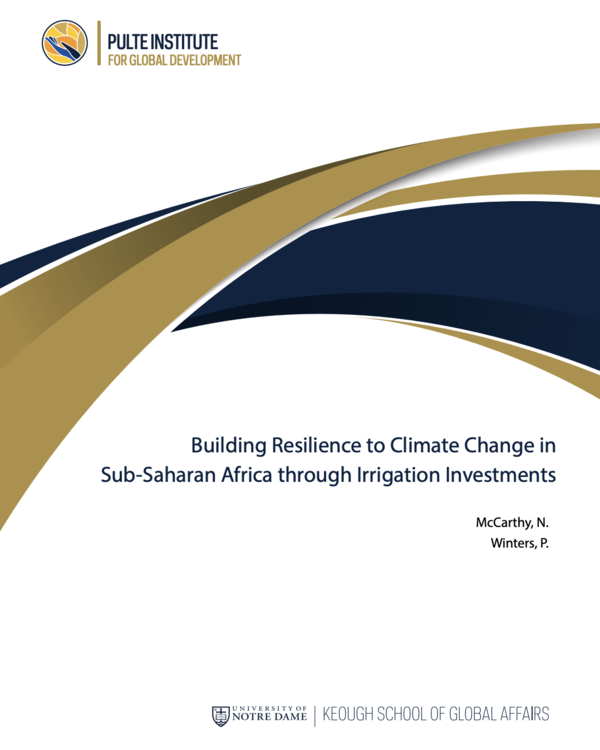
Building Resilience to Climate Change in Sub-Saharan Africa through Irrigation Investments - Report
In this paper, we review literature on the performance of different types of irrigation schemes, mainly restricting our attention to schemes found in SSA.
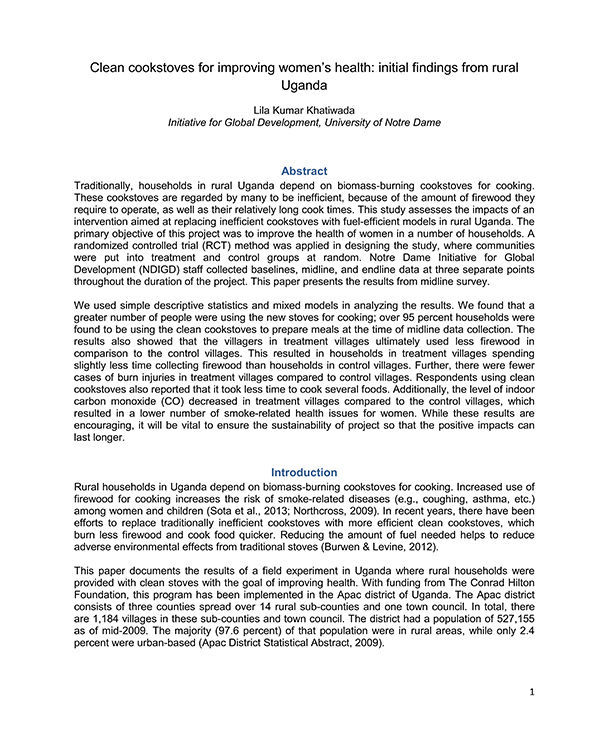
Clean Cookstoves for Improving Women’s Health: Initial Findings from Rural Uganda
This paper, which won the Rural Sociological Society’s (RSS) second annual Ralph B. Brown Scholar Paper Competition in 2017, examines the impact of clean cookstoves—that replaced traditional biomass-burning cookstoves—in rural Uganda.
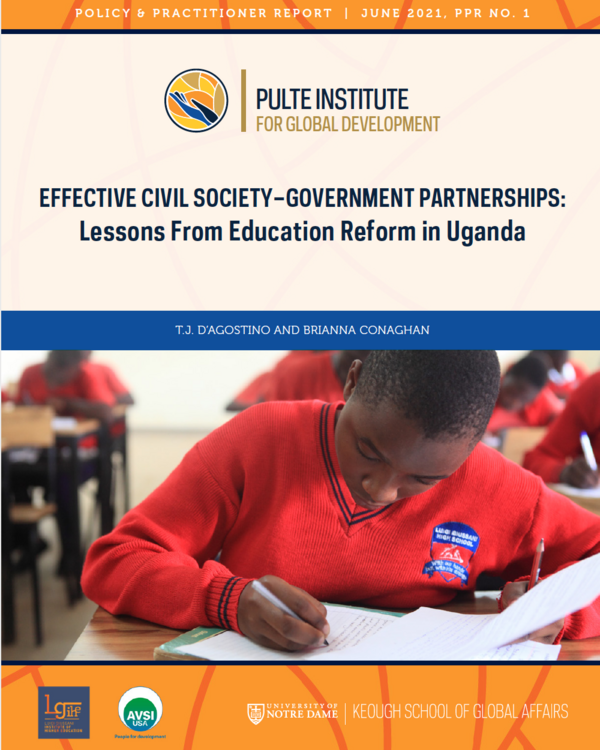
Effective Civil Society–Government Partnerships: Lessons From Education Reform in Uganda
This report examines partnerships between an institute of higher education in Uganda and its Ministry of Education and proposes a model for effective government and civil society partnerships for state capacity building in low-income country contexts.

Entrepreneurship as a Solution to Poverty in Developed Nations
This publication explores entrepreneurship as an important mechanism for breaking the poverty cycle in developed economies.
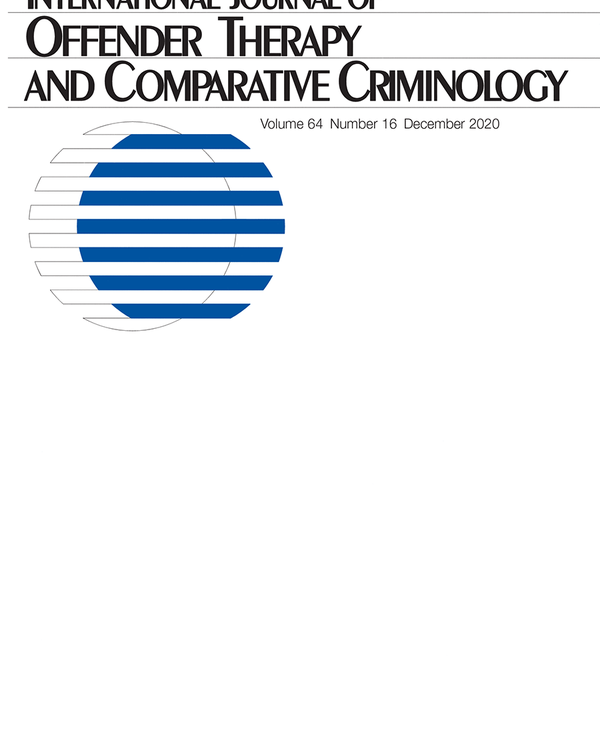
Entrepreneurship Education in the Transformation of Incarcerated Individuals: A Review of the Literature and Future Research Directions
This article studies the theories of entrepreneurial cognition, planned behavior, and criminal desistance to understand the role of entrepreneurship education in the behavioral and cognitive transformation of incarcerated individuals
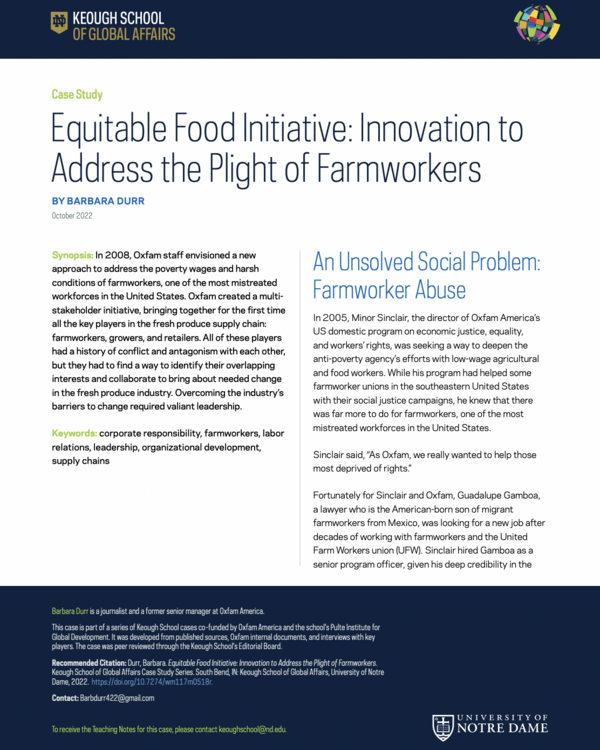
Equitable Food Initiative: Innovation to Address the Plight of Farmworkers
In this case study, Oxfam staff envisioned a new approach to address the poverty wages and harsh conditions of farmworkers, one of the most mistreated workforces in the United States
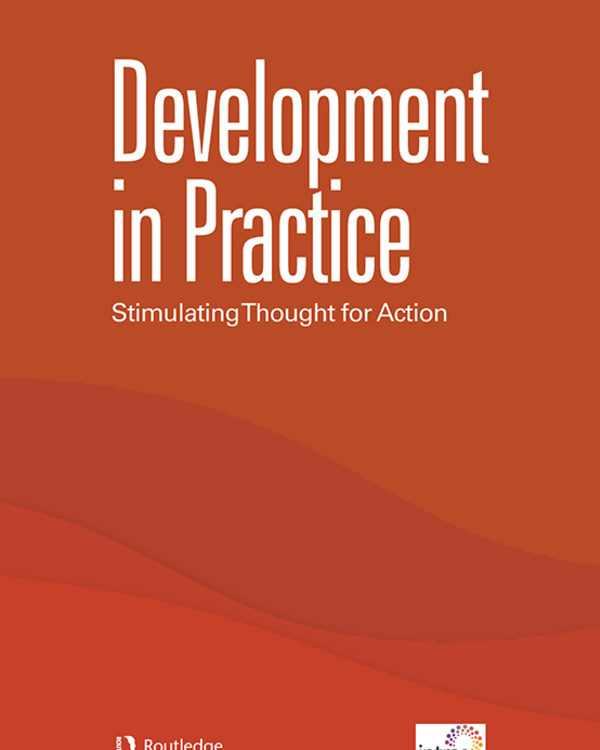
Evaluating Social Protective Factors for Violence Involvement in Honduras
This article evaluates social protective factors in violence prevention policies and programmes in Honduras.
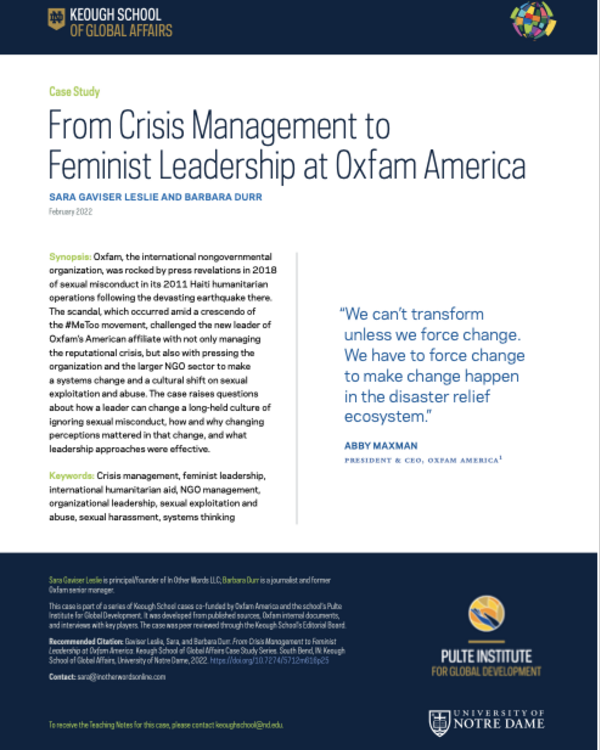
From Crisis Management to Feminist Leadership at Oxfam America
Oxfam, the international nongovernmental organization, was rocked by press revelations in 2018 of sexual misconduct in its 2011 Haiti humanitarian operations following the devasting earthquake there.
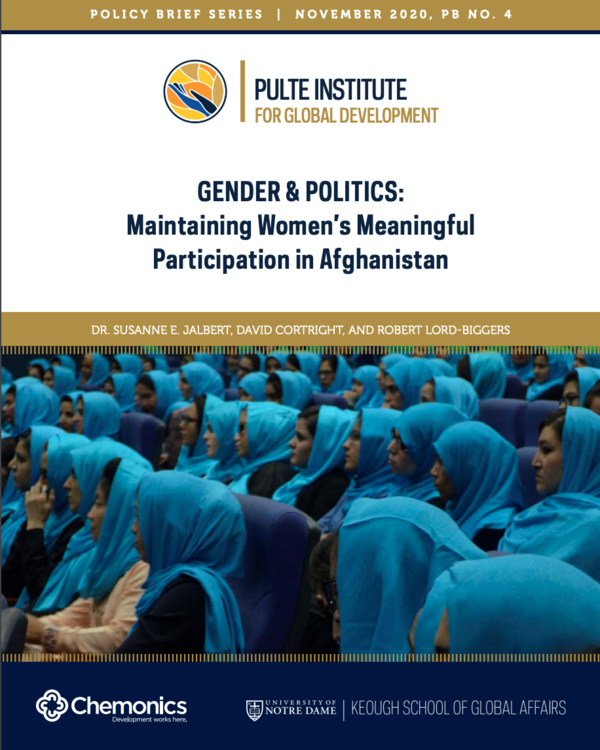
Gender and Politics: Maintaining Women’s Meaningful Participation in Afghanistan
This policy brief examines the clear correlation between U.S. support and correspondent development outcomes to institutionalize women's rights in Afghanistan
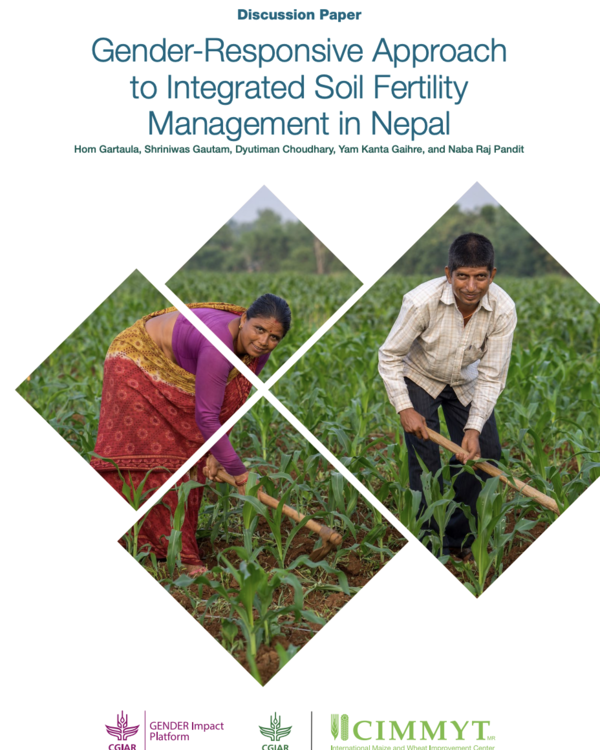
Gender-Responsive Approach to Integrated Soil Fertility Management in Nepal
This discussion paper sheds light on how women and socially marginalized populations can benefit from ISFM, using case studies from Nepal, and suggests a gender-responsive ISFM framework for broader applicability.
Getting the message out: Information and communication technologies and agricultural extension
Researchers conducted a randomized controlled trial comparing the effectiveness of three ICTs—radio, voice response messages, and a smartphone app—with traditional extension training in communicating fertilizer management practices in rural Nepal.
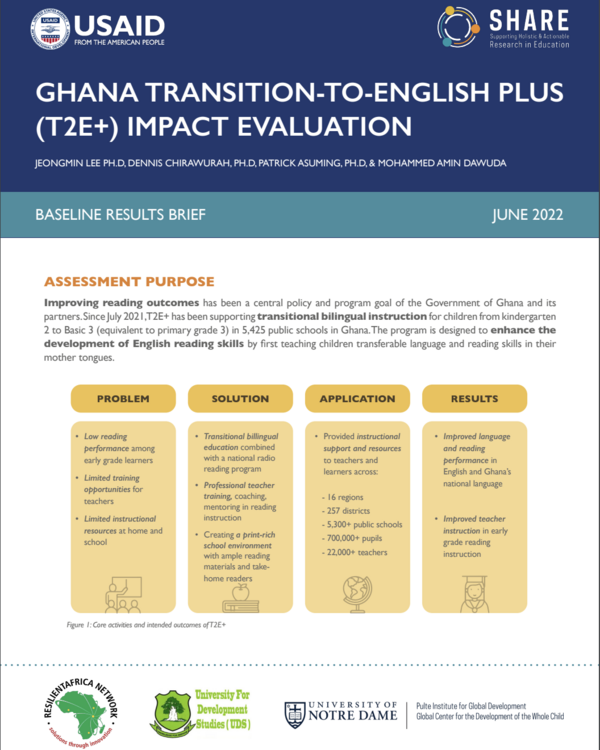
Ghana Transition-to-English Plus (T2E+) Impact Evaluation
The SHARE project, funded by USAID and led by UND’s Pulte Institute for Global Development and the Institute for Educational Initiatives, performed a program evaluation of T2E+. This brief discusses its findings.
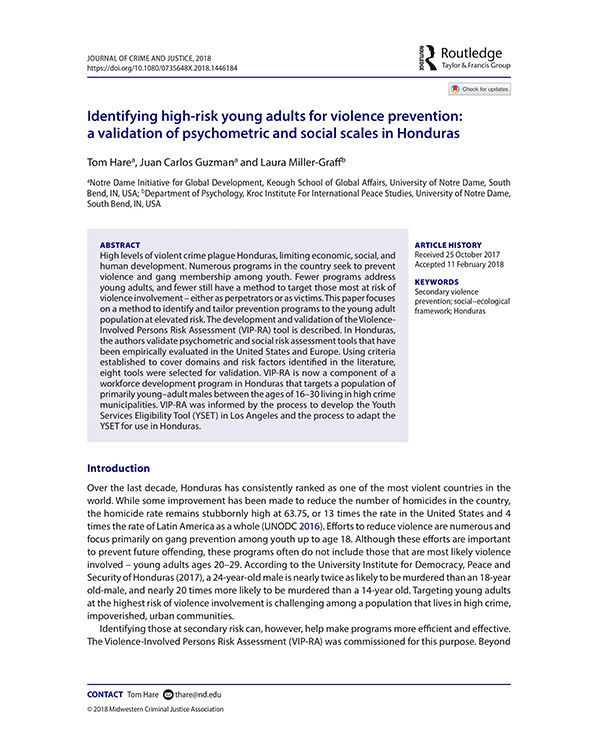
Identifying High-Risk Young Adults for Violence Prevention: A Validation of Psychometric and Social Scales in Honduras
This article details the creation of the new Violence-Involved Persons Risk Assessment (VIP-RA) tool; an aggregate of seven psychometric and social risk assessment tools previously validated in various American and European contexts.
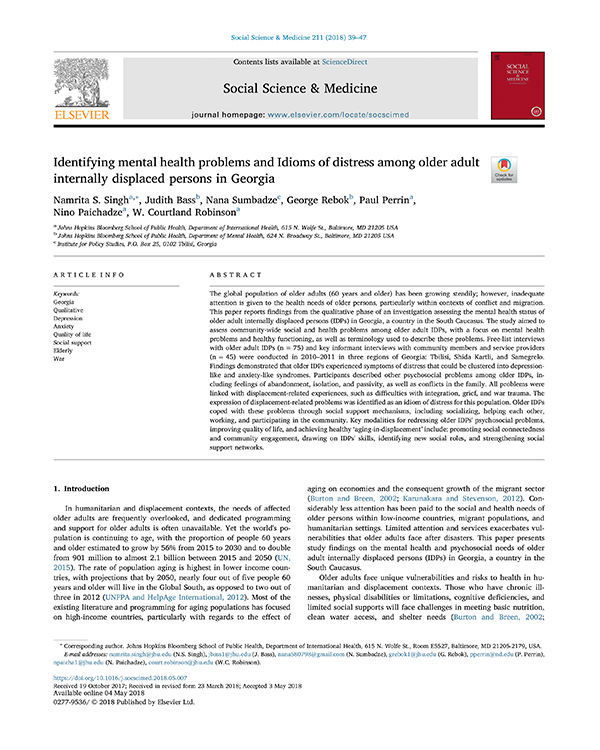
Identifying Mental Health Problems and Idioms of Distress Among Older Adult Internally Displaced Persons in Georgia
Researchers ask three groups of older adult internally displaced persons (IDPs), originally from Abkhazia and South Ossetia, questions related to psychosocial health in an effort to identify the effects of displacement on mental health.
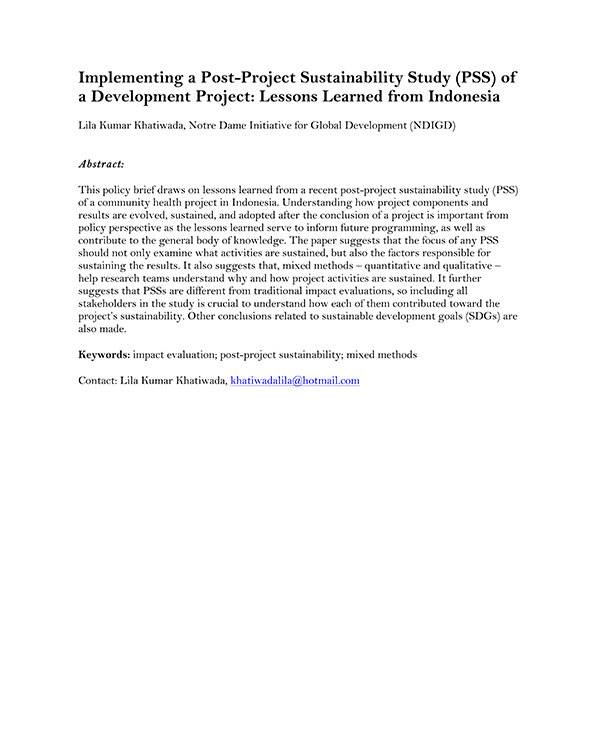
Implementing a Post-Project Sustainability Study (PSS) of a Development Project: Lessons Learned from Indonesia
This paper focuses on questions development organizations should consider to determine whether a PSS would be an appropriate methodology to use for their own projects.
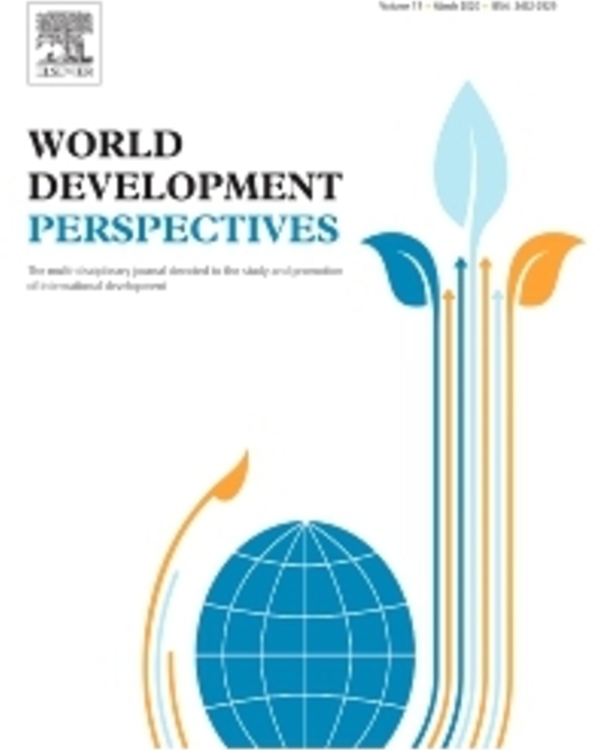
Improved cookstoves as pathway between food preparation and reduced domestic violence
This paper examines the pathway between improved cookstoves and prevalence of domestic violence in Uganda.
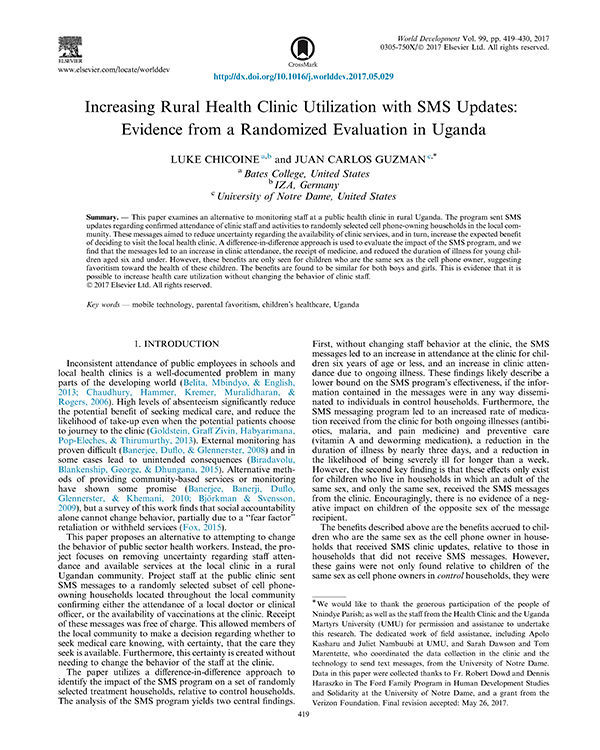
Increasing Rural Health Clinic Utilization with SMS Updates: Evidence from a Randomized Evaluation in Uganda
This paper explores the results of a program where researchers used short message service (SMS) to reduce uncertainty regarding the availability of clinic services in Uganda’s rural Nnindye Parish.

Measuring couple relationship quality in a rural African population: Validation of a Couple Functionality Assessment Tool in Malawi.”
We carried out a validation study of the Couple Functionality Assessment Tool (CFAT) to capture valid and reliable data on various domains of relationship quality.
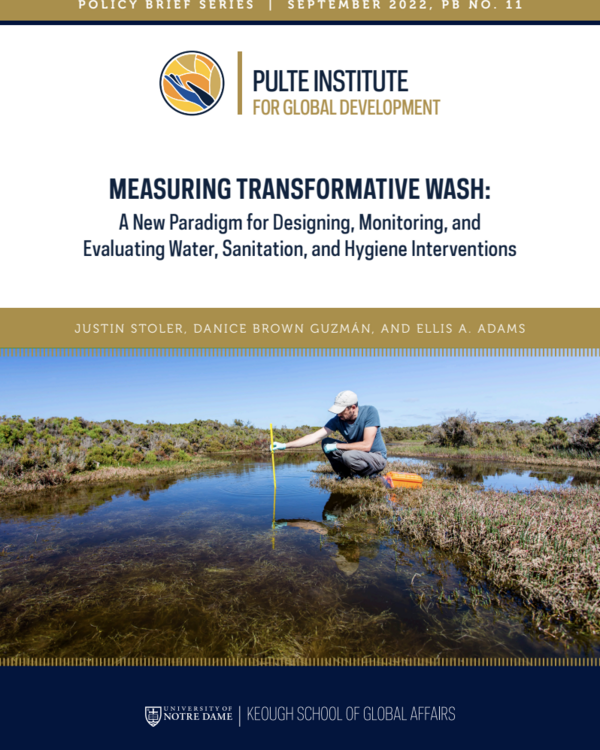
Measuring Transformative WASH: A New Paradigm for Designing, Monitoring, and Evaluating Water, Sanitation, and Hygiene Interventions
This policy brief summarizes factors that perpetuate the status quo in WASH program assessment and outlines a new paradigm for designing, monitoring, and evaluating WASH interventions.

Measuring Transformative WASH: A New Paradigm for Designing, Monitoring, and Evaluating Water, Sanitation, and Hygiene Interventions - Report
This report presents factors that perpetuate the status quo in WASH program assessment and outlines a new paradigm for designing, monitoring, and evaluating WASH interventions.
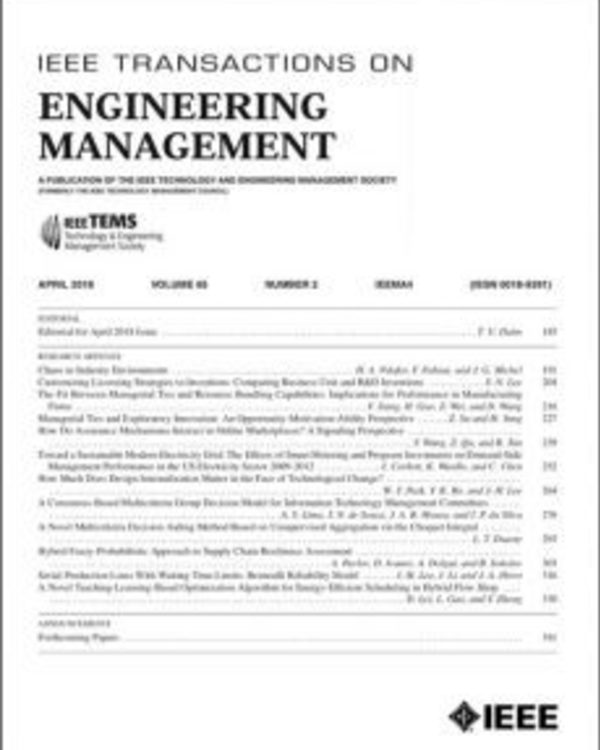
Overcoming Barriers to Technology Adoption When Fostering Entrepreneurship Among the Poor: The Role of Technology and Digital Literacy
This article explores critical areas of typical ventures launched by the poor that are affected by technology.
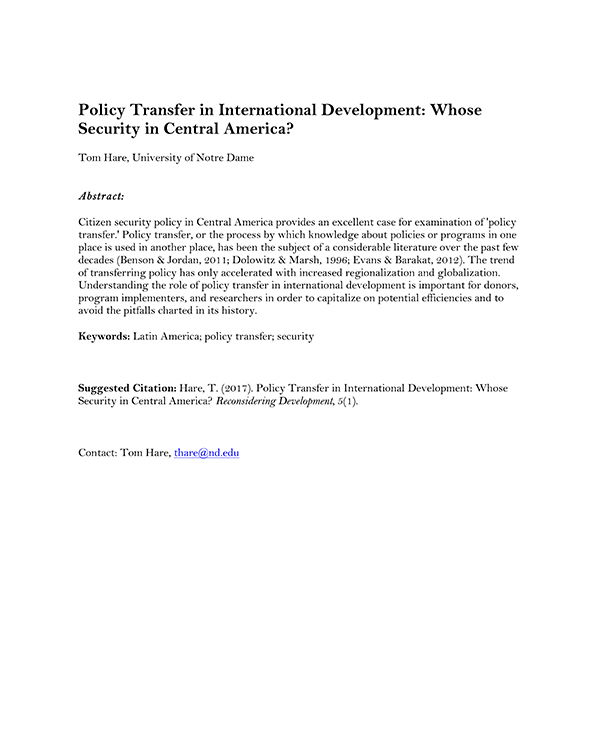
Policy Transfer in International Development: Whose Security in Central America?
This paper identifies questions development organizations should consider before implementing policy transfers, which are the processes by which knowledge about policies or programs in one location are used in another location.
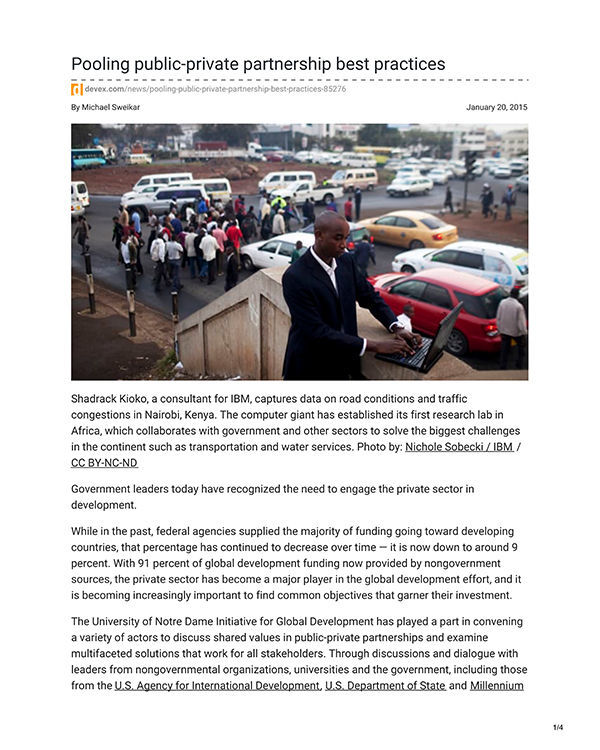
Pooling Public-Private Partnership Best Practices
This article explores NDIGD's efforts to convene a variety of actors to discuss shared values in public-private partnerships and examine multifaceted solutions that work for all stakeholders.
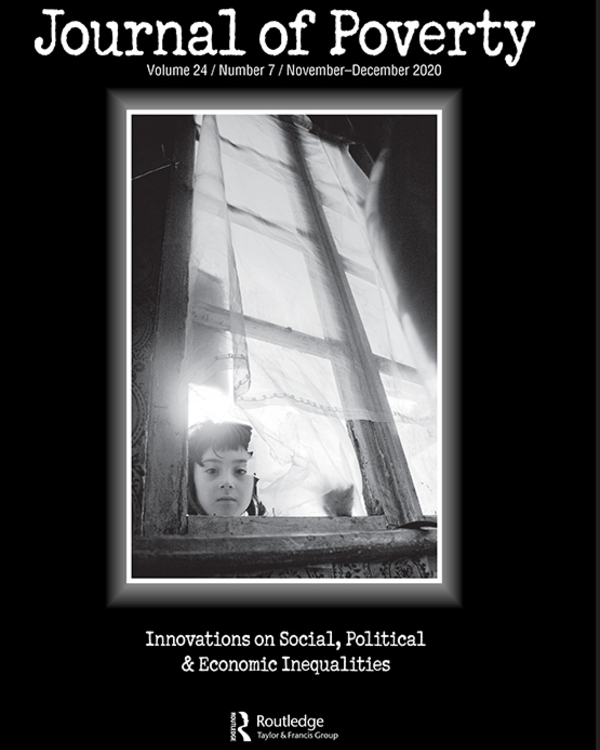
Poverty and Entrepreneurship in Developed Economies: Re-Assessing the Roles of Policy and Community Action
This article explores how developed economies can better realize the entrepreneurial potential of the poor by emphasizing the nexus of public policy and community action.
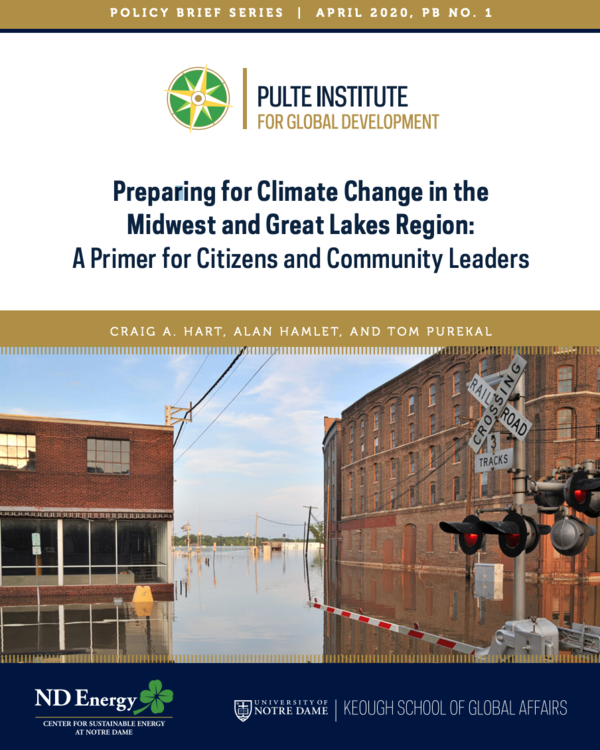
Preparing for Climate Change in the Midwest and Great Lakes Region: A Primer for Citizens and Community Leaders
This policy brief analyzes the future impact of climate change in the Midwest and Great Lakes region and recommendations of action that communities can take to mitigate them.
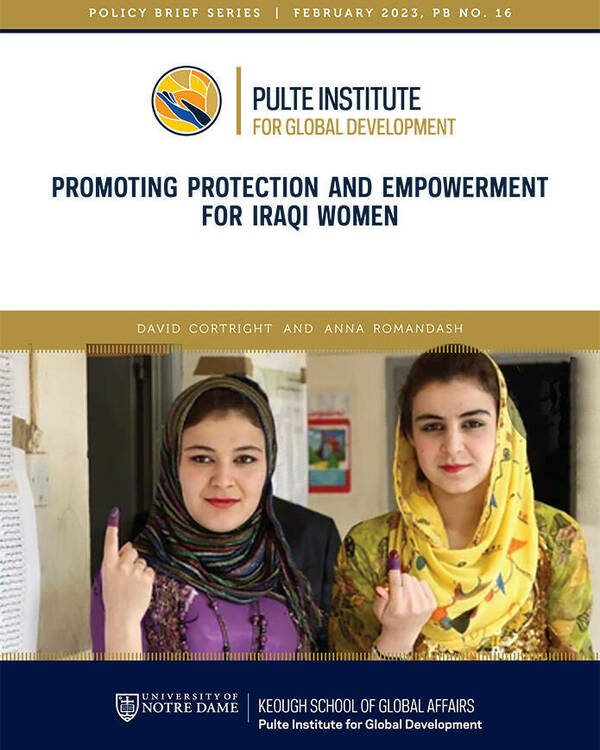
Promoting Protection and Empowerment for Iraqi Women
March 2023 marks 20 years since U.S. forces invaded Iraq, and the ensuing war was another blow to women's rights. This brief outlines why an agenda for change developed by Iraqi women deserves international support.
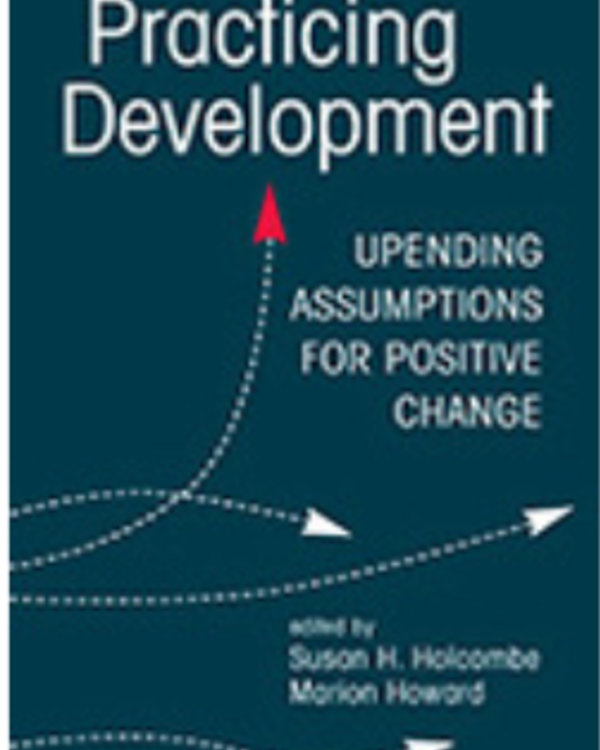
Reimagining Development Practice (in "Practicing Development: Upending Assumptions for Positive Change")
The authors draw from their on-the-ground experiences as they discuss what "development" is, how to attain it, and what their findings mean for the funding and practice of development efforts.
Research to Policy: A Long-Term Impact Evaluation of the Partnerships for Enhanced Engagement in Research Program
Investment in scientific research in low- and middle-income countries has the potential to increase evidence generation, improve researcher capacity, and motivate policy change.
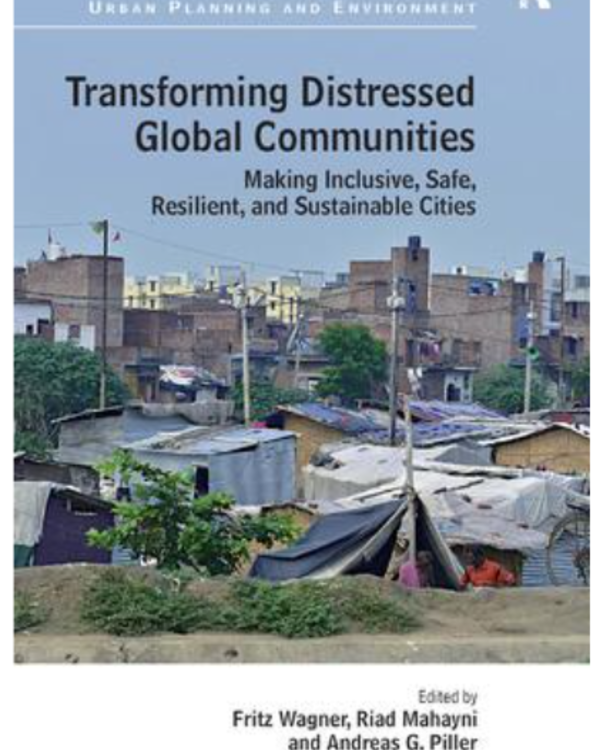
Social Accountability and City Life in Modernizing Countries. In F.W. Wagner & R.G. Mahayni (Eds.), Transforming Distressed Global Communities: Making Inclusive, Safe, Resilient, and Sustainable Cities. Franham, UK:
This volume argues for the need to redesign and re-plan our cities in holistic ways that reflect our new understanding and relate to their diversity and multi-dimensionality.

Social Norms Regarding Bribing in India: An Experimental Analysis,
We conduct incentive-compatible economic experiments to measure norms regarding social appropriateness of bribes in India.
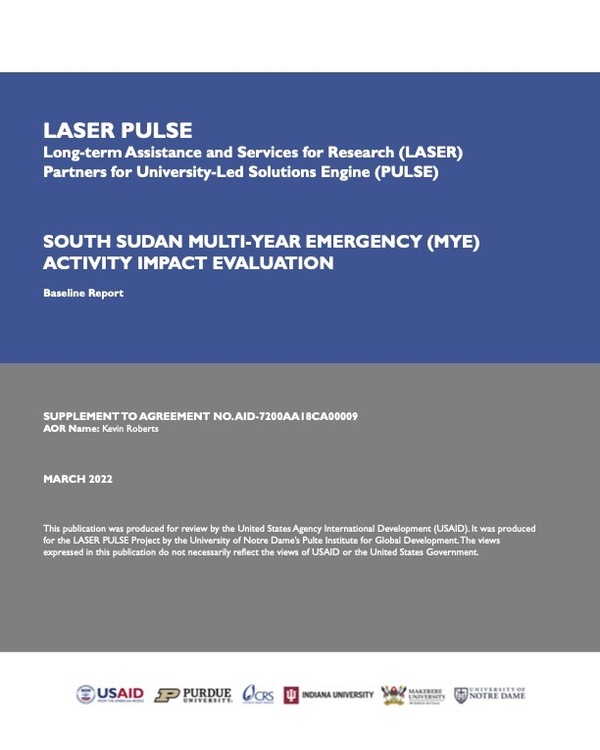
South Sudan Multi-Year Emergency (MYE) Activity Impact Evaluation: Baseline Report
This article examines the effectiveness of Multi-Year Emergency (MYE) Activity installed in South Sudan on mitigating the impact of shocks, preventing the erosion of household assets and livelihoods, and accelerating recovery.
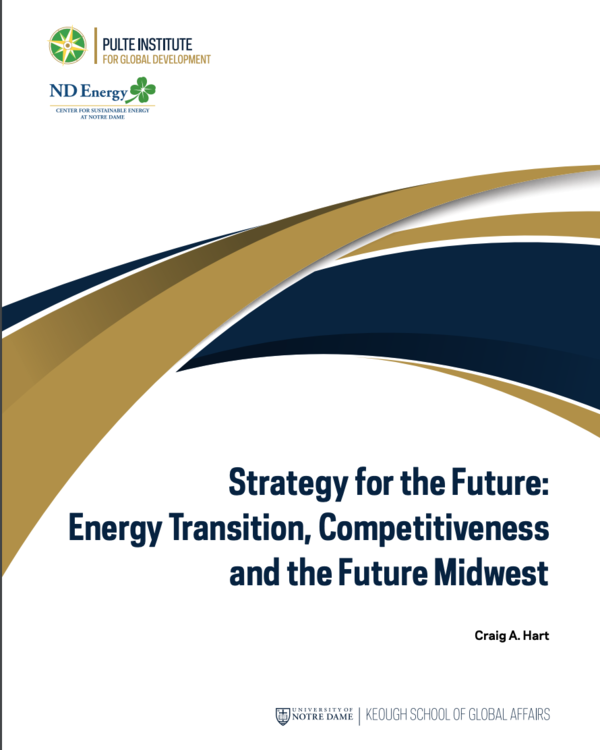
Strategy for the Future: Energy Transition, Competitiveness and the Future Midwest
This report evaluates how the Midwest can shape its future by embracing this energy transition and exploiting the opportunities that clean energy presents for strengthening the region’s industrial position.
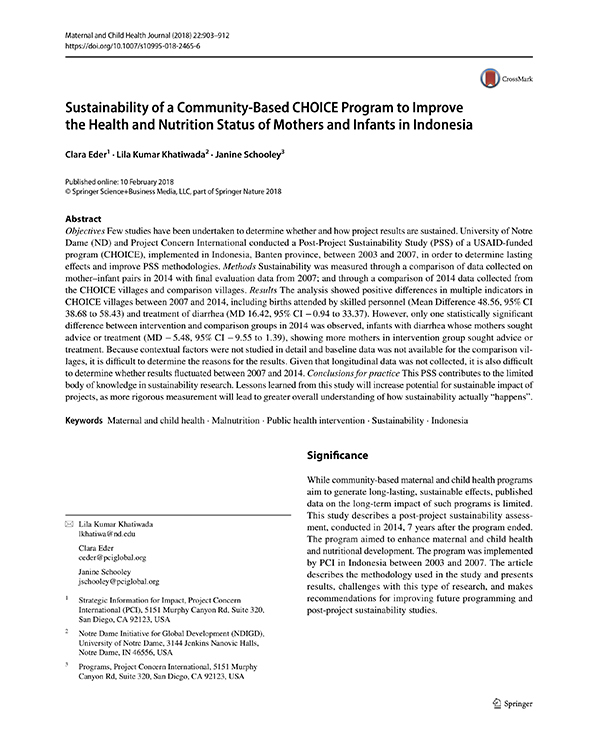
Sustainability of a Community-Based CHOICE Program to Improve the Health and Nutrition Status of Mothers and Infants in Indonesia
This paper examines the results of a post-project sustainability study (PSS) of a USAID-funded program in Indonesia that aimed to improve the health and nutrition status of children under the age of five, among other things.

Sweeping it under the rug: Household chores and misreporting of child labor
We collect data on child labor in almost 3,000 Nepali households, and our analysis shows that estimates of child labor prevalence vary from 11.6% to 29% with the definition of child labor used.

The Economic Benefits of Passing the DREAM Act
We present an analysis to understand what would happen if the United States were to grant a pathway to legal status to an estimated 2.1 million eligible youth in our country by passing the DREAM Act.
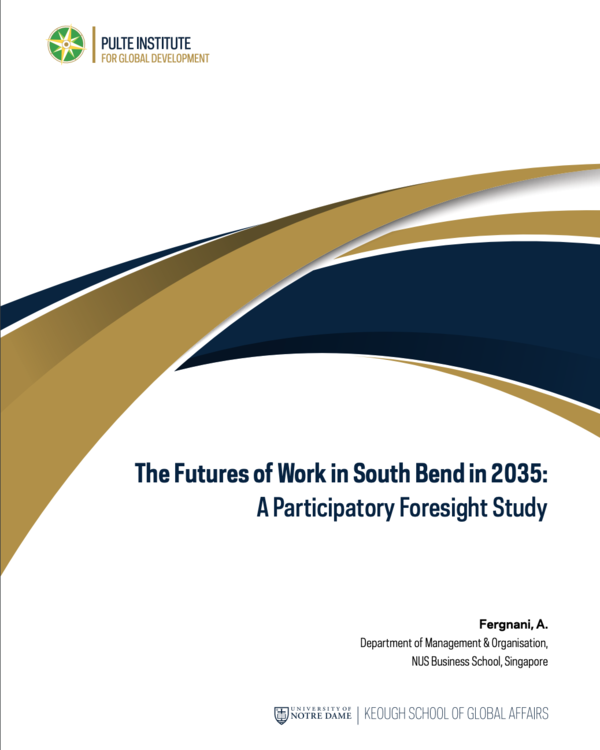
The Futures of Work in South Bend in 2035: A Participatory Foresight Study
This report examines a study that uses a participatory foresight approach, formulating potential scenario narratives of the futures of work by actively engaging the local community in South Bend
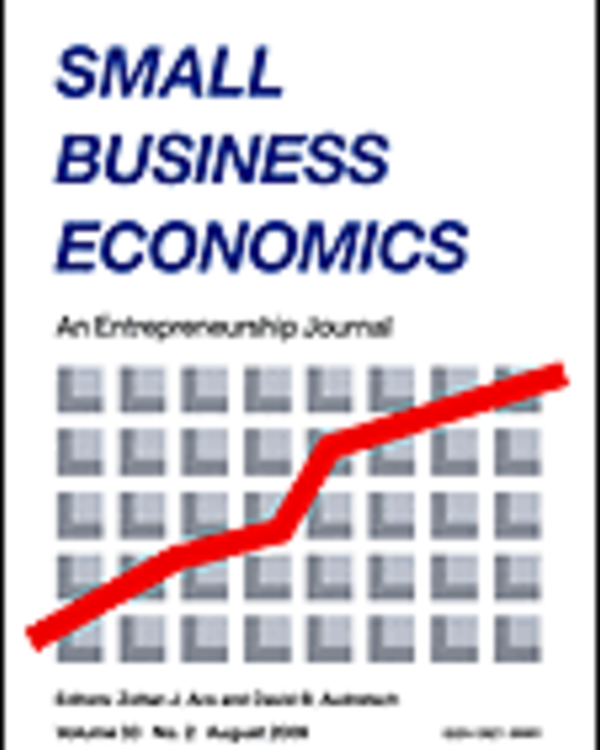
The Great Divides in Social Entrepreneurship and Where They Lead Us
We present an inclusive approach to social entrepreneurship that provides a common platform for advancing the field while allowing for diverse streams of research.
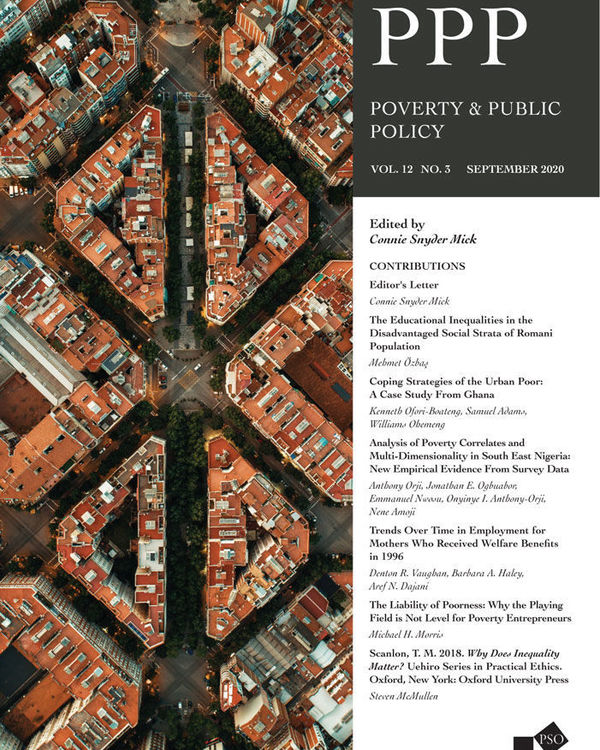
The Liability of Poorness: Why the Playing Field is Not Level for Poverty Entrepreneurs
This article explores the important implications poverty presents entrepreneurs in their ability to launch and sustain viable businesses.
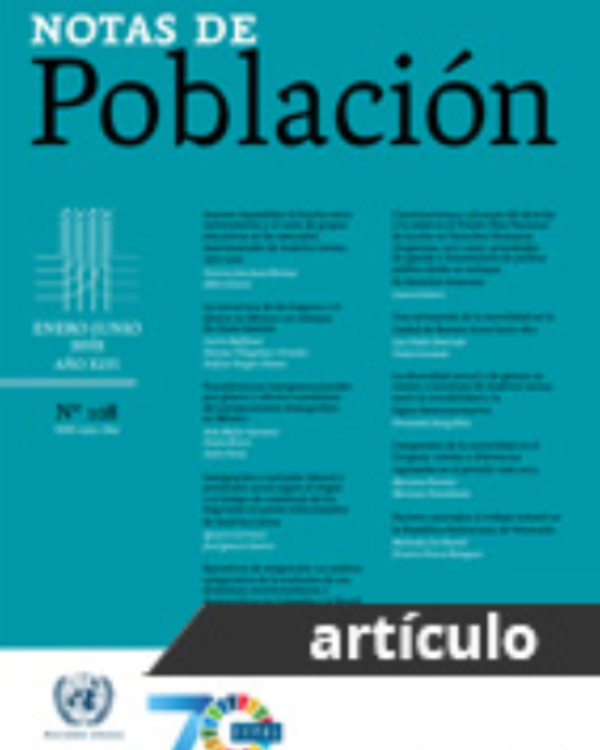
Transferencias intergeneracionales por género y efectos económicos del envejecimiento demográfico en México
Los propósitos de este artículo son visualizar el potencial efecto del cambio demográfico en la dependencia económica de mujeres y hombres ante el inminente proceso de envejecimiento demográfico.

Transforming Conservation into Cash? Nature Tourism in Southern Africa
This study investigates the factors shaping local perceptions of conservation, and its findings can enhance the effectiveness of nature tourism as a sustainable development strategy.
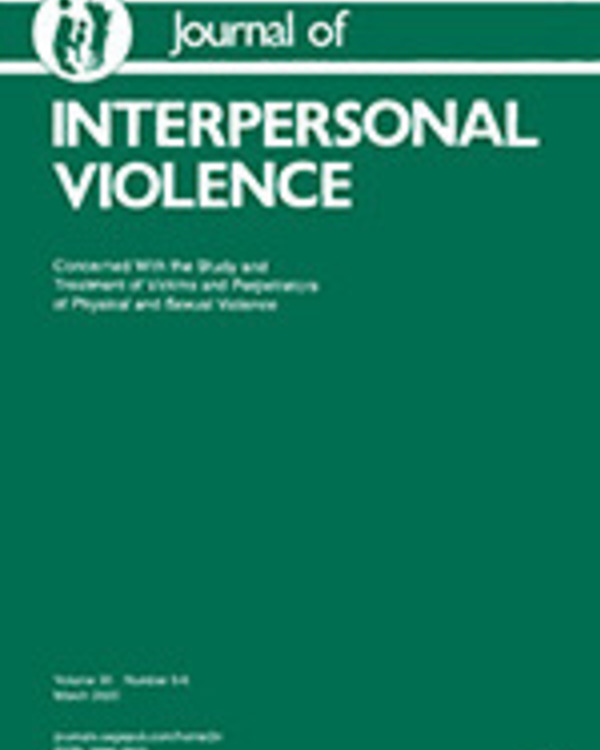
Typologies of Childhood Exposure to Violence in Peru
This study examined typologies of childhood polyvictimization and the associations of profiles with demographic characteristics at the levels of child, household, and primary caregiver.
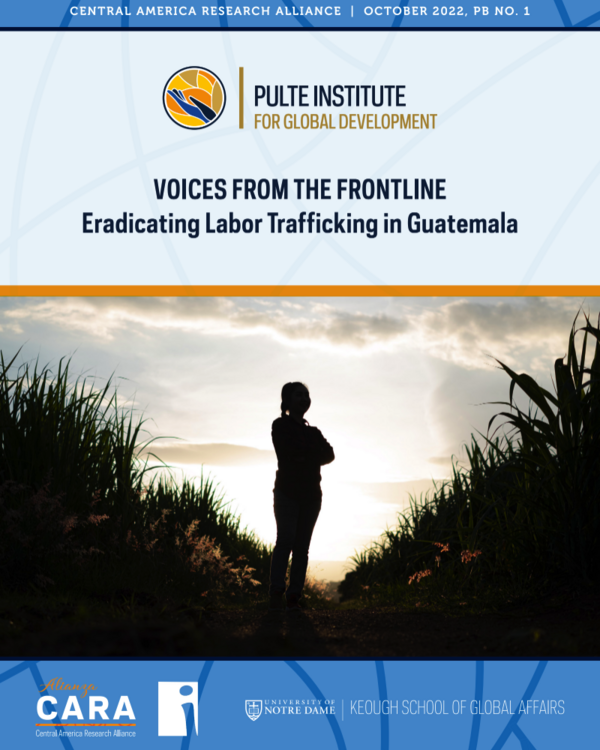
Voices from the Frontline: Eradicating Labor Trafficking in Guatemala
Human trafficking in Guatemala occurs in various forms and places, many of which are hidden or hard to discern.
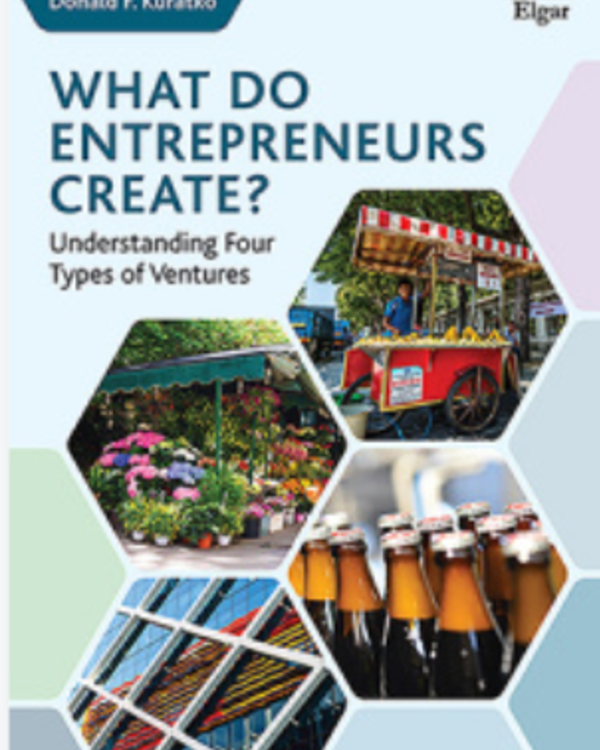
What Do Entrepreneurs Create
This book addresses the different kinds of businesses launched by entrepreneurs and explains why their differences are so critical for our understanding of entrepreneurship.
What’s in Your Cup? Oxfam America Takes on Starbucks
But how can smallholder coffee farmers ensure they receive a fair price for their product in an era of globalization dominated by powerful multinational corporations?
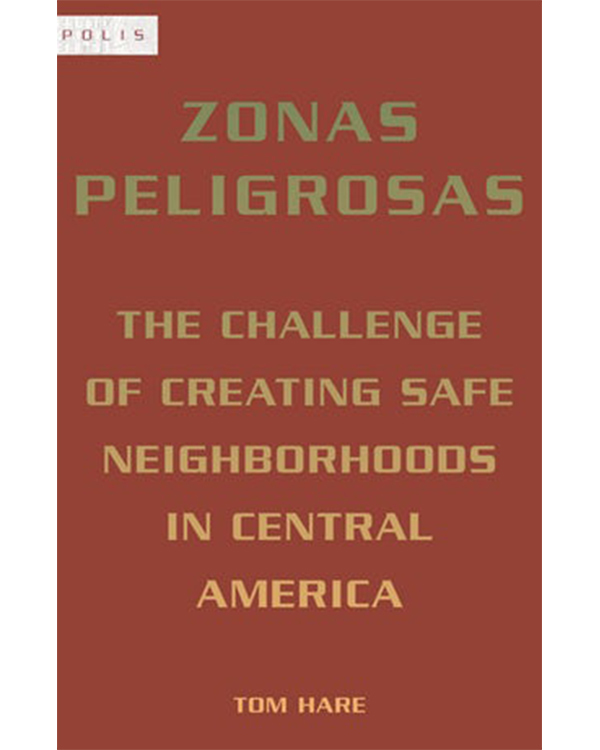
Zonas Peligrosas: The Challenge of Creating Safe Neighborhoods in Central America
Zonas Peligrosas "examines indicators of orderliness and security in El Salvador, shows how policies and programs based on disorganization theory have been used, and why they might not make Salvadoran urban dwellers safer."
